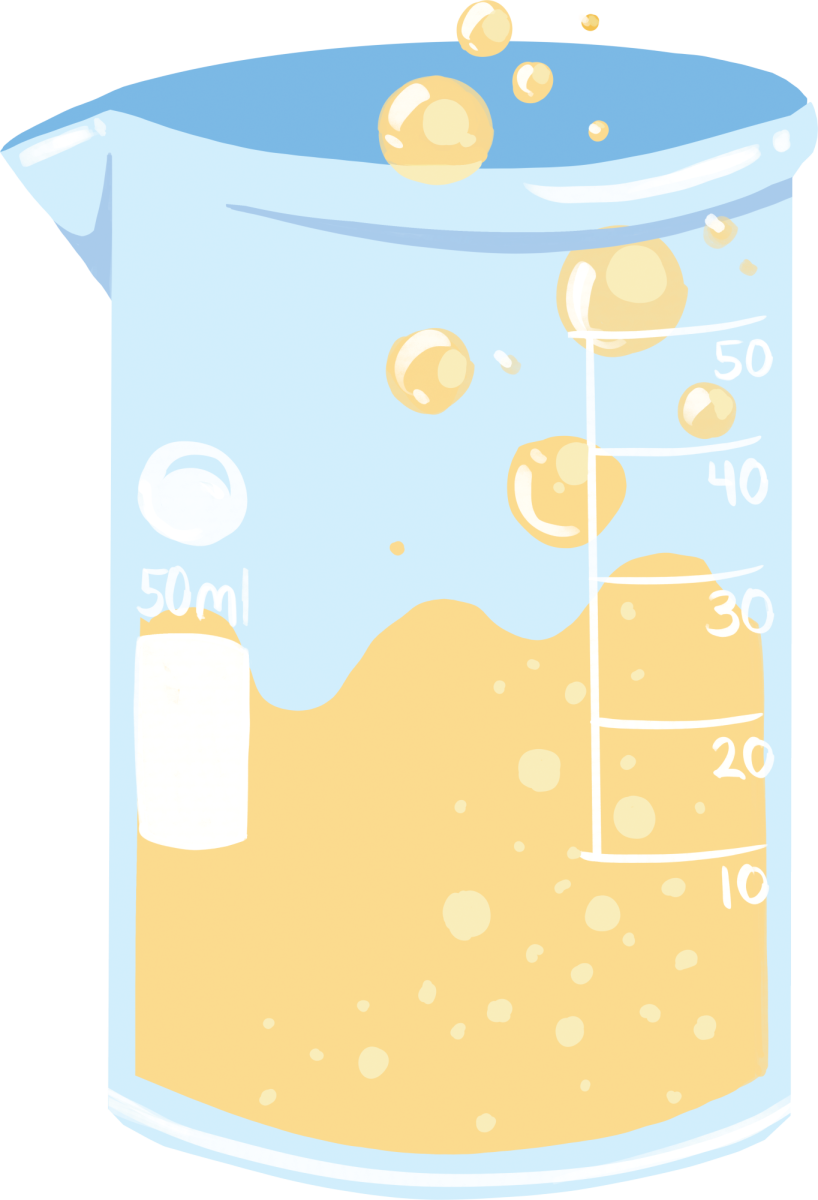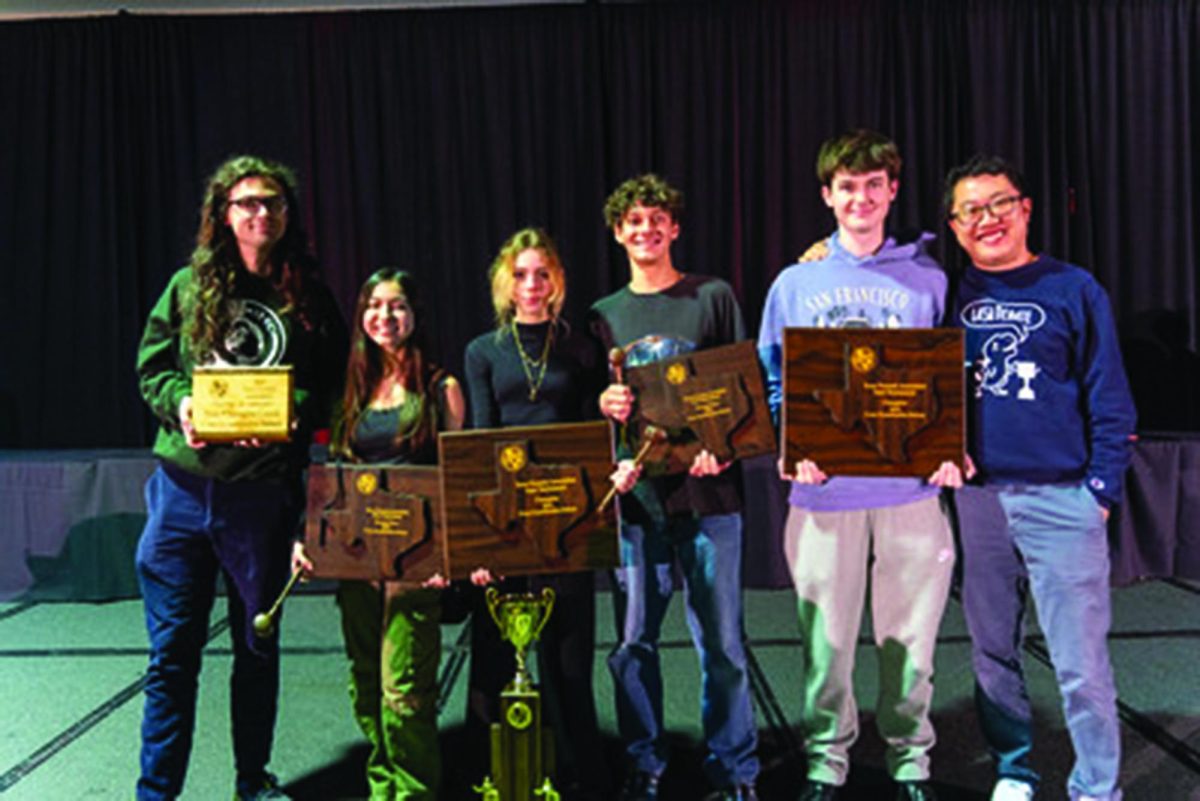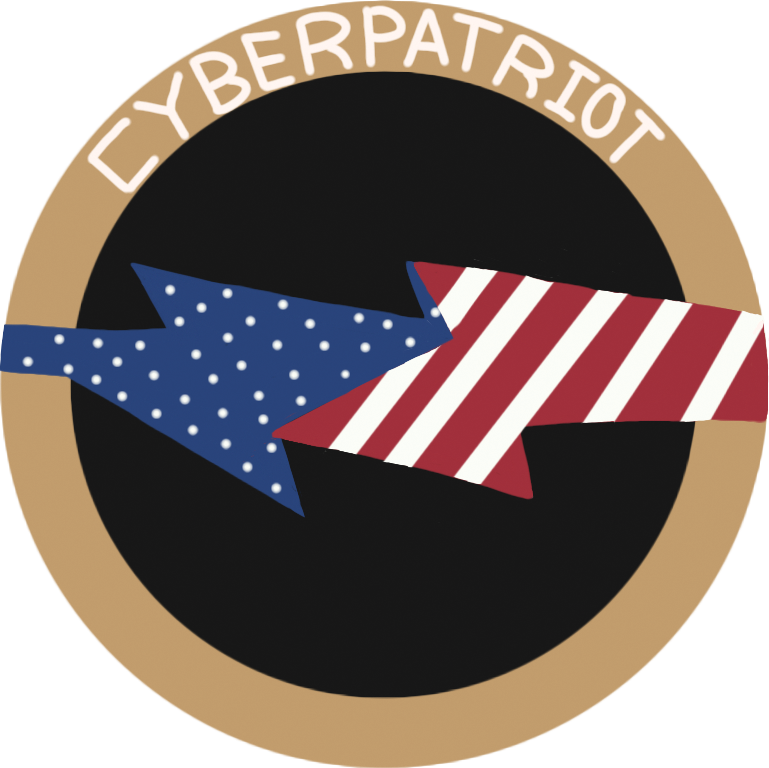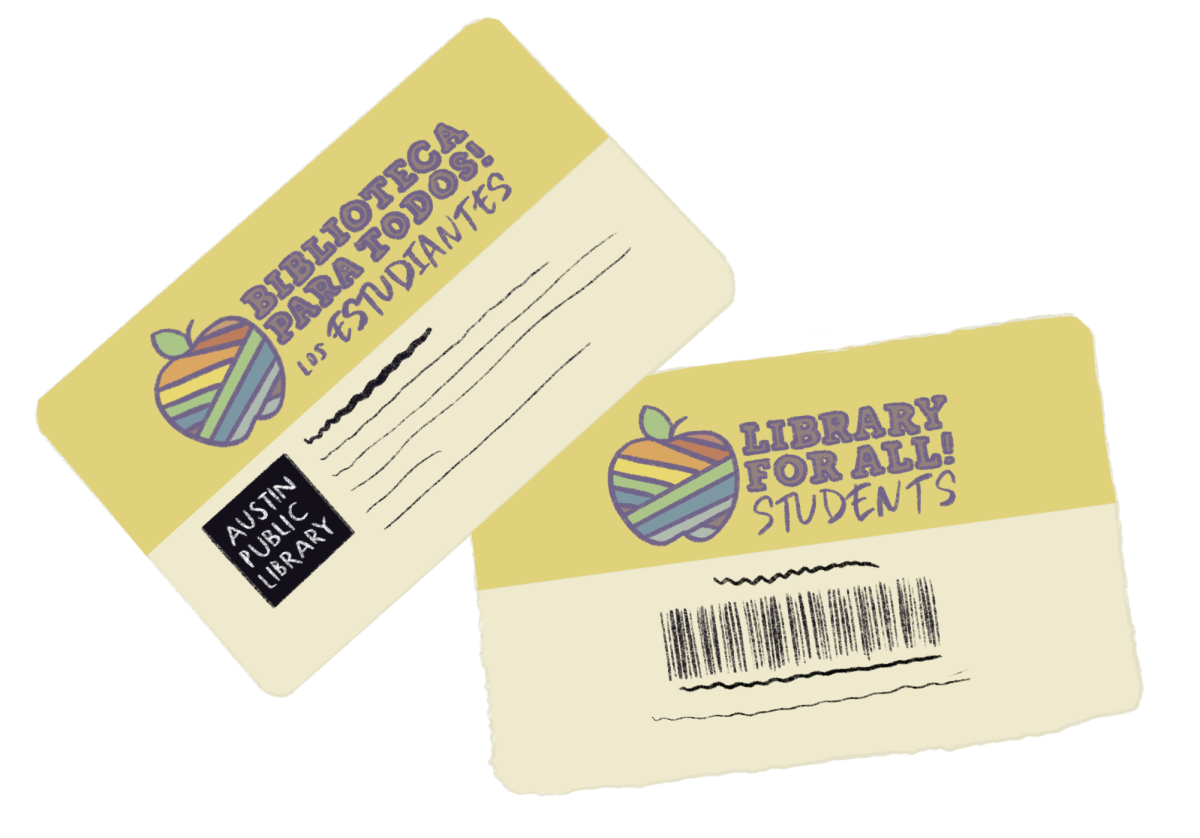LASA is nationally ranked as one of the best high schools in the United States, and with that ranking comes many challenging college-preparatory classes. One of these is the sophomore Pre-AP Chemistry class which has recently received many complaints about increased difficulty, the grading system, lack of extra credit, and the difficult material. But, according to the chemistry teachers, no changes have been made to the curriculum and the assignments have undergone only minor changes.
Chemistry classes at LASA are taught through a mix of assigned videos, live lectures, and reading and solving practice problems from the textbook written by the chemistry instructors. Students also take frequent Check for Understandings (CFUs) to increase their understanding of the content and tests every unit. Sophomore Sarah Smith described the subject as something she’s ambivalent to as a class. The fast-paced nature of the class and the grading system make it hard for her.
“I think it’s a little bit tough, especially considering we don’t have extra credit, but it’s supposed to be a hard class,” Smith said. “The only assignments we really have is homework and I think it’s reasonable.”
Accounts of the class’s increased difficulty have spread to other grades. Junior Renee Breaux, who remembers the class’s workload from their experience last year, assumes the already tough class is made harder by changing testing and grading policies.
“I’ve heard that this year is much harder, especially now that practice problems are being checked and CFUs have changed,” Breaux said. “[For my class], about 90% of people passed CFUs since we had multiple attempts.”
Despite complaints from students, according to Shontel Willie, one of LASA’s chemistry teachers and forensics teacher, the only changes made to the class are that CFUs are no longer online and that students only have one attempt instead of three on CFUs unlike in previous years. These changes, according to her, were put in place to slowly phase out the class’s policies while online during the COVID-19 pandemic. No changes have been made to the curriculum or the class’s difficulty.
Though the class is meant to be demanding, Smith feels that she has to compensate for the difficulty of the coursework by going to office hours and studying with friends when she’s struggling with a topic. Similarly, sophomore Mia Lopez relies on both the material in class and supplemental content in order to fully understand the content.
“I study by going through the textbook and marking the questions and topics that I don’t feel comfortable on,” Lopez said, “and then I go through the workbook and re-work some of the problems and write down explanations for how to do them. If I still don’t understand then I watch a video on how to do the topic.”
In order to ensure the class runs smoothly and works best for their students, the chemistry teachers meet weekly to work through issues and make adjustments to the course, according to chemistry teacher Joel Barton.
“We standardize our BLEND courses and assignment dates,” Barton said. “We also meet weekly to discuss our classes, as well as intermittently during our conference periods and between classes.”
While some students feel pressure from some teachers grading practice problems more seriously rather than treating them as a completion grade, according to Willie, it is invaluable in helping the students gain a greater understanding of the content. Barton also assists his students when they struggle by working with them in class and suggesting outside sources to help them thrive in the class.
“First, I assist them in class,” Barton said. “Next, I recommend office hours (either with myself or another chemistry teacher) and/or the UT (University of Texas at Austin) tutors. After that, I recommend individualized help from me when necessary; contact with a student’s family is also helpful.”
While the teachers do not confidently know if the class will see any more changes next year, they hope more labs and projects will be incorporated into the class. Some students also wish to see changes in the class. Smith suggests extra credit as an option to keep the difficulty of the class the same while decreasing student’s stress about grades, while Lopez suggests more interactive learning.
“If I had to improve that class, I think I would make it more self-paced with the incorporation of labs so we can apply what we are learning,” Lopez said. “I feel that it helps me to learn the topic better.”
If students struggle with the chemistry class’s content, LASA offers tutoring from UT students after school. Chemistry tutoring is held in the library after school on Tuesdays, Wednesdays, and Thursdays from 4:15 to 6:15.







